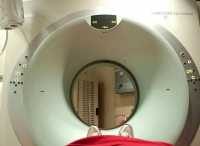
16 Aug How Common is Overdiagnosis of Lung Cancer with Low Dose CT Screening?
MedicalResearch.com Interview with:
 Dr. Bruno Heleno MD PhD
Dr. Bruno Heleno MD PhD
Assistant Professor | Professor Auxiliar
NOVA Medical School | Faculdade de Ciências Médicas
Universidade Nova da Lisboa
MedicalResearch.com: What is the background for this study? What are the main findings?
Response: The Danish Lung Cancer Screening Trial (DLCST) is a randomized controlled trial which enrolled 4104 participants (aged 50-70 years; current or former smokers; ≥20 pack years; former smokers must have quit <10 years before enrollment) to either 5 rounds of screening for lung cancer with low-dose CT-scans or to no screening.
After 10 years of follow-up, there was a 2.10 percentage points lung cancer absolute risk increase with low-dose CT-screening. Overdiagnosis, i.e. the detection of cancer that would not progress to symptoms or death, was estimated at 67.2% of the screen-detected cancers.
MedicalResearch.com: What should readers take away from your report?
Response: In the DLCST the estimate of overdiagnosis was larger than what was previously reported in other trials assessing lung cancer screening with low-dose CT-scans.
The National Lung Screening Trial, estimated that 18.5% of screen-detected lung cancers were overdiagnosed. The Italian Lung Cancer Screening Trial (ITALUNG) found no evidence of overdiagnosis. Since the results of these trials are inconsistent, we think it is premature to change current clinical practice. Data from the other randomized trial will clarify the true extent of overdiagnosis in lung cancer screening.
Our results are interesting for clinicians involved in shared decision making about lung cancer screening. At this moment, we have high quality evidence that screening reduces overall mortality (5 deaths per 1000 screened participants, of which 3 deaths are due to lung cancer). The evidence about overdiagnosis is of moderate quality due to inconsistency. With lung cancer screening, 5 participants (NLST estimate) may be diagnosed with a cancer that does not progress to symptoms or death. This number may be as high as 16 participants (DLCST estimate) or as low as 0 participants (ITALUNG estimate).
MedicalResearch.com: What recommendations do you have for future research as a result of this work?
Response: First, we need that all trials assessing lung cancer screening report estimates of overdiagnosis. Trials should also report contaminatio (i.e. the use of chest CT-scans in the control group), as this will help us interpret the estimates of overdiagnosis.
Second, we need to understand how screening participants make sense of the concept of overdiagnosis and whether the uncertainty around quantitative estimates of overdiagnosis changes screening decisions.
All authors declare that have no conflicts of interest regarding this paper.
Citation:
Heleno B, Siersma V, Brodersen J. Estimation of Overdiagnosis of Lung Cancer in Low-Dose Computed Tomography Screening. JAMA Intern Med. Published online August 13, 2018. doi:10.1001/jamainternmed.2018.3056
[wysija_form id=”3″]
[last-modified]
The information on MedicalResearch.com is provided for educational purposes only, and is in no way intended to diagnose, cure, or treat any medical or other condition. Always seek the advice of your physician or other qualified health and ask your doctor any questions you may have regarding a medical condition. In addition to all other limitations and disclaimers in this agreement, service provider and its third party providers disclaim any liability or loss in connection with the content provided on this website.
Last Updated on August 16, 2018 by Marie Benz MD FAAD
